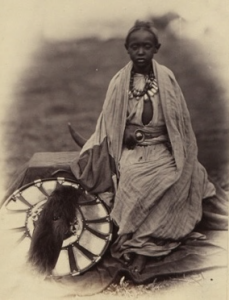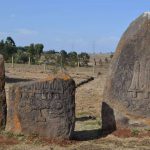Maqdala 150th Anniversary 2018
This year marks 150 years since the siege of Maqdala in 1868. Maqdala was a nearly impregnable mountain fortress, a natural military stronghold of Emperor Tewodros II otherwise known as Theodore II of Abyssinia.
After a misunderstanding with the British Government, Emperor Tewodros imprisoned a number of hostages at Maqdala. Negotiations failed, and eventually Britain mounted a huge force to release the hostages, organised on an unprecedented scale from Bombay (now Mumbai), sailing to Zula (40 miles south of Massawa), then overland 450 miles through mountainous and dangerous country to Maqdala. The force included 12,000 troops, and 8,000 auxiliaries, including bearers, porters, drovers, sanitary men, grass-cutters, water-carriers and cooks, with 35,000 pack animals, 8,000 mules, and 44 Indian elephants. This entailed a huge encampment at Zula on the Red Sea, with the construction of two 300-metre-long jetties, desalination equipment, and a temporary broad-gauge railway 6 mls along the coastal plain, with 6 steam locomotives, ready for the arrival of 280 ships. The successful siege involved the suicide of Emperor Tewodros, the death of his wife Terunesh, and the transportation of his young son Alemayehu to England, where he was in the care of Queen Victoria until his death aged 19 and burial in the chapel at Windsor Castle.
As a result, this episode is not the finest hour of Abyssinian history, but the siege is a unique example of a combined international force of navy, infantry, cavalry and artillery overcoming insurmountable obstacles of communications, logistics and transportation. Emperor Tewodros has divided opinion ever since, but he faced impossible odds and superior weaponry, and is remembered for his efforts at national modernisation and unification.




